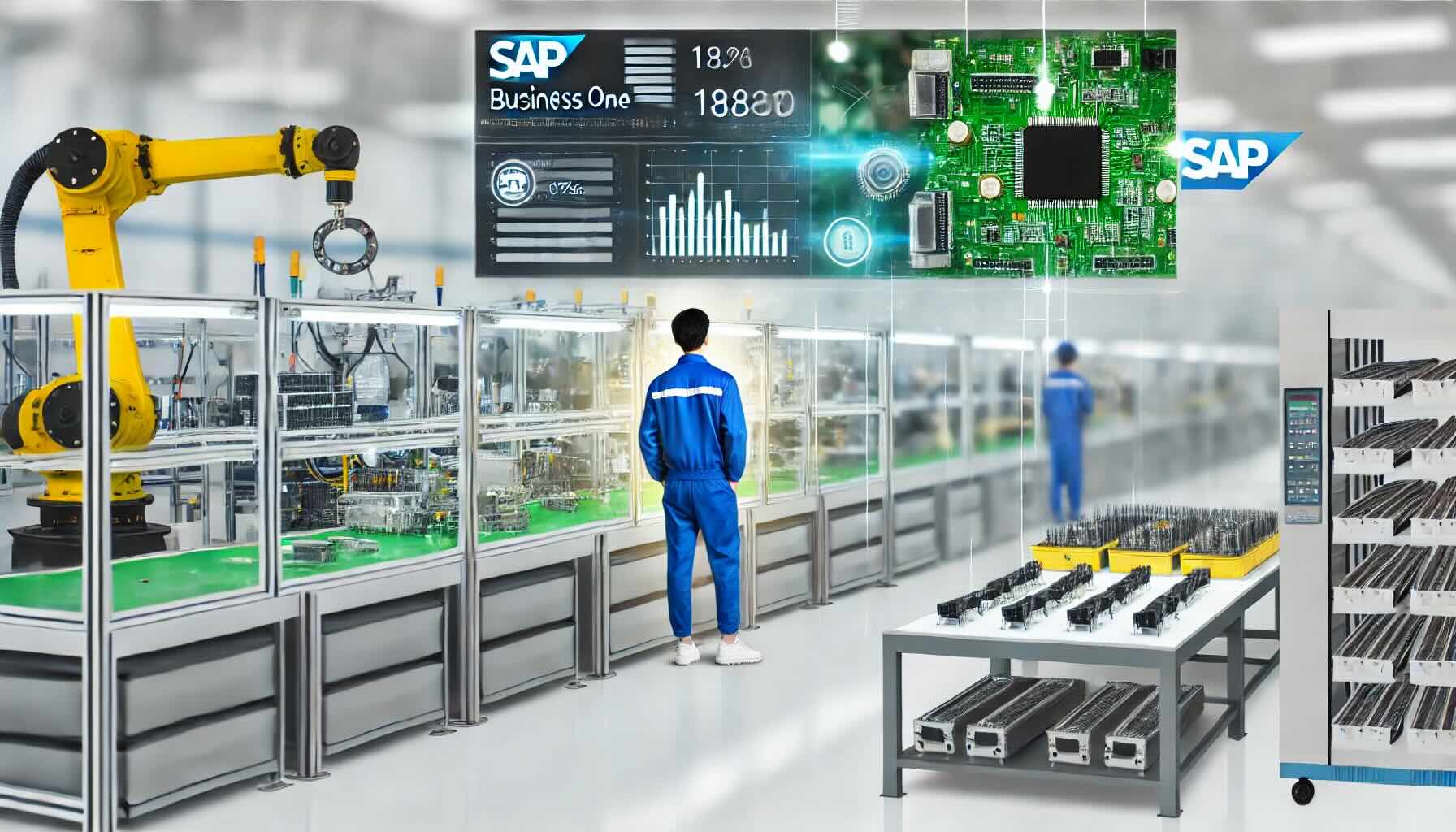Compare ERP for Engineering Businesses

Engineering businesses face unique challenges, including complex project management, intricate supply chains, and rigorous regulatory requirements. Choosing the right Enterprise Resource Planning (ERP) system can significantly enhance operational efficiency, project management, and compliance. This blog will compare ERP for engineering businesses, focusing on Epicor, IFS Cloud, Odoo, Oracle Cloud ERP, and SAP S/4HANA. We will explore their strengths and weaknesses to help you make an informed decision.
Epicor
Strengths:
- Industry-Specific Solutions: Epicor offers tailored solutions for the engineering sector, addressing specific needs such as project management, supply chain management, and compliance. This focus ensures that the system is well-suited to the unique requirements of engineering businesses.
- Flexibility and Customization: The platform is highly flexible and customizable, allowing businesses to tailor the system to their specific processes and requirements. This flexibility helps in accommodating unique engineering workflows.
- Strong Project Management: Epicor provides robust project management tools that help in planning, executing, and monitoring projects efficiently. This feature is crucial for engineering firms that manage multiple, complex projects simultaneously.
- User-Friendly Interface: Epicor’s intuitive interface reduces the learning curve, enabling quick adoption by employees. This ease of use can enhance productivity and minimize training time.
Weaknesses:
- Cost: The initial setup and licensing costs can be high, which might be a barrier for smaller engineering firms. Ongoing maintenance and customization can also add to the overall expense.
- Implementation Time: Implementing Epicor can be time-consuming, often requiring several months to fully integrate and optimize the system. This can delay the realization of benefits.
- Integration Challenges: Integrating Epicor with existing systems and third-party applications can be complex and may require additional development work.
- Scalability Issues: While Epicor is suitable for mid-sized businesses, it may face scalability issues as the company grows, potentially requiring additional investments in infrastructure.
Click this link to find out more about Epicor for Engineering.
IFS Cloud
Strengths:
- Comprehensive Functionality: IFS Cloud offers a wide range of features specifically designed for the engineering sector, including asset management, project management, and service management.
- Flexibility: The system is highly flexible, allowing for extensive customization to meet specific business needs. This flexibility ensures that the ERP can adapt to various engineering processes.
- Global Reach: IFS Cloud supports multi-language, multi-currency, and global compliance requirements, making it suitable for international engineering firms.
- Advanced Analytics: The platform provides advanced analytics and reporting tools, enabling detailed analysis of project performance, financials, and operational efficiency.
Weaknesses:
- Complex Implementation: The implementation process can be complex and time-consuming, often requiring specialized IT resources and consultants.
- High Cost: IFS Cloud can be expensive to implement and maintain, particularly for smaller engineering firms. The total cost of ownership should be carefully considered.
- User Training: Extensive training is necessary to fully utilize the system’s capabilities, which can be a significant investment in time and resources.
- Customization Challenges: While the system is flexible, extensive customization can be challenging and resource-intensive, potentially leading to increased costs.
Click this link to find out more about IFS Cloud for Engineering.
Odoo
Strengths:
- Cost-Effective: Odoo is an open-source ERP, which makes it a cost-effective option for engineering firms, particularly small to mid-sized businesses.
- Modularity: The modular design allows businesses to choose and pay for only the features they need, ensuring a tailored fit for their specific requirements.
- Ease of Use: Odoo’s user-friendly interface and intuitive design make it easy for employees to learn and use, reducing training time and improving productivity.
- Customization: The platform offers extensive customization options, allowing businesses to tailor the system to their unique workflows and processes.
Weaknesses:
- Limited Advanced Features: Compared to larger ERP systems, Odoo may lack some advanced features required by larger engineering firms with complex needs.
- Support: Official support options are limited, and businesses may need to rely on community support or hire external consultants for complex issues.
- Integration Challenges: Integrating Odoo with existing systems can be challenging and may require additional customization and development work.
- Scalability: While suitable for small to mid-sized businesses, Odoo may not scale as effectively for very large engineering firms.
Click this link to find out more about Odoo for Engineering.
Oracle Cloud ERP
Strengths:
- Comprehensive Suite: Oracle Cloud ERP offers a comprehensive suite of applications, covering all aspects of engineering business operations, from project management to supply chain and financials.
- Scalability: The platform is highly scalable, making it suitable for engineering firms of all sizes. It can handle increasing data loads and user demands as the business grows.
- Advanced Security: Oracle Cloud ERP provides robust security features to protect sensitive data, ensuring compliance with industry standards and regulations.
- Real-Time Analytics: The system offers real-time analytics, giving engineering firms immediate access to critical operational data and insights.
Weaknesses:
- Cost: Oracle Cloud ERP is a significant financial investment, with high licensing and implementation costs that may be prohibitive for smaller firms.
- Complex Implementation: The implementation process can be complex and time-consuming, requiring expert guidance and a dedicated IT team.
- Customization Challenges: Customizing Oracle Cloud ERP to meet specific needs can be challenging and time-consuming, potentially requiring additional development resources.
- User Training: Extensive user training is necessary to fully utilize the system’s capabilities, which can be a time-consuming and costly process.
Click this link to find out more about Oracle Cloud for Engineering.
SAP S/4HANA
Strengths:
- Real-Time Data Processing: SAP S/4HANA offers powerful real-time data processing capabilities, essential for engineering firms needing immediate insights into project performance and operational efficiency.
- Comprehensive Functionality: The system provides a wide range of modules tailored to the engineering sector, including project management, asset management, and financial management.
- Advanced Analytics: SAP S/4HANA includes advanced analytics and reporting tools, enabling detailed analysis of operational performance, project outcomes, and financial health.
- Global Reach: The platform supports multiple languages and currencies, making it ideal for international engineering firms.
Weaknesses:
- High Cost: The cost of implementing and maintaining SAP S/4HANA can be prohibitive, especially for small to mid-sized firms. The licensing fees, implementation costs, and ongoing maintenance require significant financial investment.
- Complex Implementation: Implementing SAP S/4HANA is complex and time-consuming, often requiring dedicated IT resources and expert consultants.
- Customization Challenges: While highly functional, customization can be limited and may require additional development to meet specific business needs.
- User Training: The system’s complexity necessitates extensive user training, which can be time-consuming and costly.
Click this link to find out more about SAP S/4HANA for Engineering.
Conclusion
Choosing the best ERP for engineering businesses depends on the specific needs, resources, and goals of the organization. Epicor, IFS Cloud, Odoo, Oracle Cloud ERP, and SAP S/4HANA each offer unique strengths and face certain challenges. By carefully evaluating these factors, engineering firms can select an ERP system that enhances their operational efficiency, project management, and overall business performance.
To compare these ERP solutions and many more, you can use our new AI-powered Compare ERP tool. It’s free to use and you get a guaranteed discount on your first year’s licence fees with a referral from Compare ERP.









